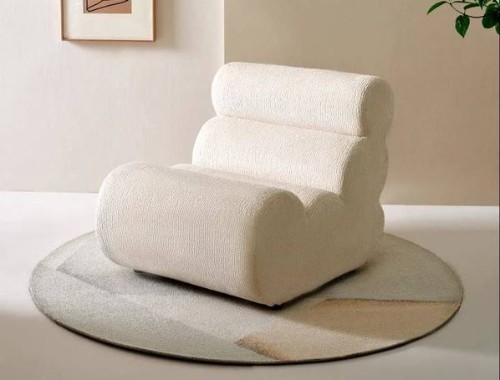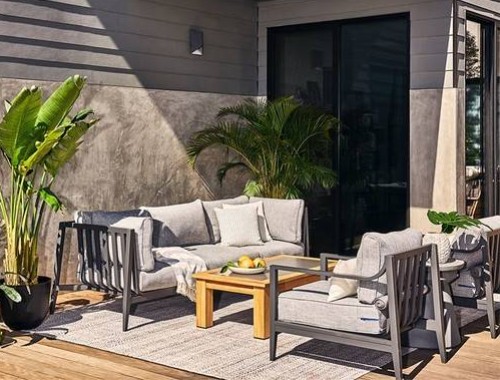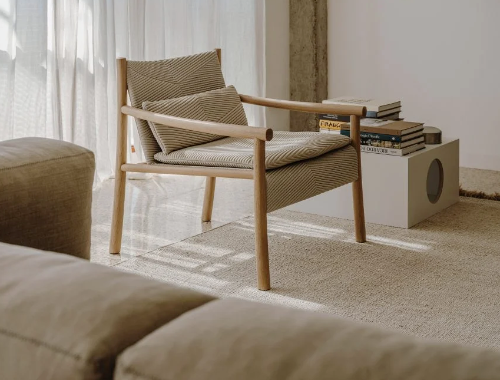Adjustable bed maker Reverie aims for growth
There's no garden at Reverie's new factory and warehouse here, but this Eden facility is a paradise for the adjustable bedding producer.
There's no garden at Reverie's new factory and warehouse here, but this Eden facility is a paradise for the adjustable bedding producer.
As the adjustable bed category continues to grow, Reverie also is writing its own growth story, consolidating some operations at a sprawling new 120,000-square-foot facility in this small western New York town.
Reverie outgrew its former 30,000-square-foot plant in Dunkirk, N.Y., and recently moved those manufacturing functions to Eden, a rural town (population 7,688) 18 miles south of Buffalo.
And some of the operations in nearby Silver Creek, N.Y., where Reverie first got established in the United States, will be moving to the new plant. Reverie will maintain its call center, some warehousing and some product development and testing operations in Silver Creek, but the footprint there will decrease over time from 45,000 square feet to about 20,000 square feet.
Reverie, which began by offering mattresses and adjustable bases from China, is expanding its commitment to U.S. manufacturing of its mattresses and adjustable bed bases, which will enable it to provide faster and better service to its customers, the company says. Some adjustable base production will continue at Reverie's facility in Taiwan, China.
Leading the growth surge at Reverie is Martin Rawls-Meehan, CEO and president. Rawls-Meehan, a down to earth, Ivy League-educated executive who stays fit with grueling Crossfit workouts, says Reverie is well positioned to help lead the growing movement in the industry toward adjustable beds.
"There is no question the adjustable bed population is on the upswing," he said. "This is more than a fad. More and more customers want adjustable beds and are demanding them. This is part of the customization movement that is a growing trend."
Those adjustable beds fill an important need: They enable consumers to customize their sleep experience, Rawls-Meehan said. The trend toward customization, in sleep position and sleep products, is gaining momentum in the marketplace, he added.
Reverie offers customizable options on many of its adjustable bases, and the Dream Cells in its mattresses, which are made of different firmnesses of latex, can be easily adjusted to create just the feel the customer wants, said Rawls-Meehan, who co-founded Reverie in 2003 with Tony Chang, a childhood friend who heads the Reverie brand in China.
Lisa Tan, Rawls-Meehan's wife, joined the company about a year ago as director of marketing and strategy. She had been doing management and strategy consulting with AT Kearney in New York.
The expanded production plant here, which will feature up to 50,000 square feet of manufacturing space, offers plenty of room for customized bed work. Reverie can provide various fabrics, deck designs, mechanical options and profiles, working with the same adjustable base platforms. Rawls-Meehan estimates that up to one-third of the adjustable beds built in Eden will eventually feature customized designs. That will give Reverie's dealers plenty of private-label options.
Reverie's newest introduction, the 7S, highlights the kind of customization Reverie can offer. It features an upholstered dual outer base frame with a proprietary, patent-pending "deck-on-deck" design that is being offered in five color choices.
-

Quanyou teamed up with the fashion brand ANNAKIKI to launch a new joint product!
-

Outer, an outdoor furniture brand founded by Chinese, enters the Australian market
-

National Bureau of Statistics: The retail sales of furniture in the first three quarters reached 120.5 billion, an increase of 20.7%
-

Enveloping lounge chairs and lightweight office chairs from Arper feature

 沪公网安备31010402003309号
沪公网安备31010402003309号



